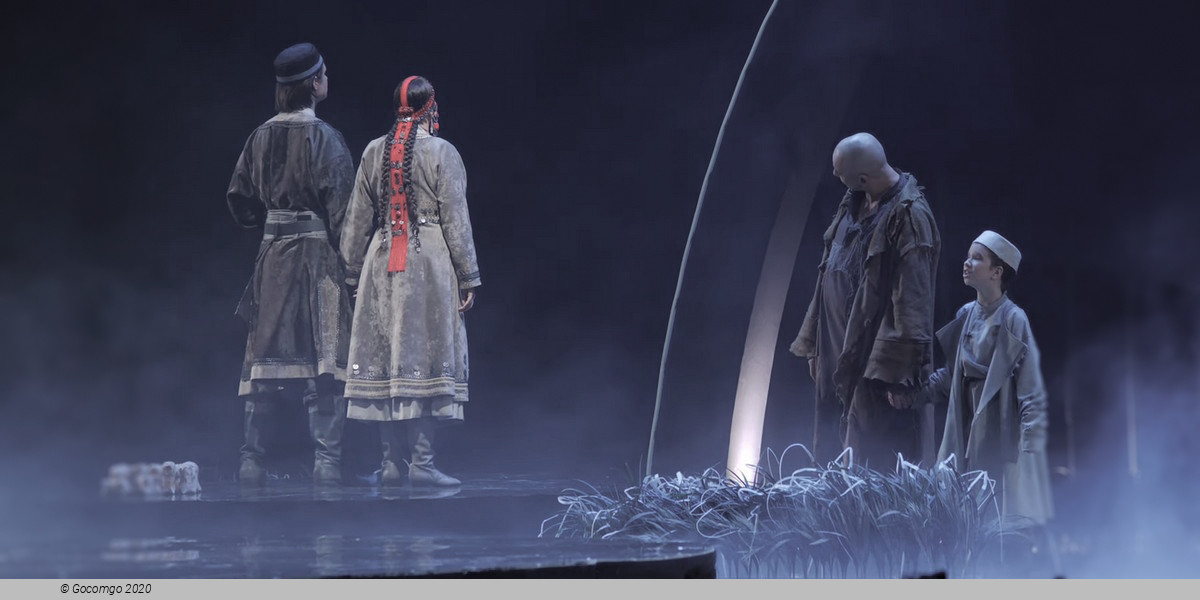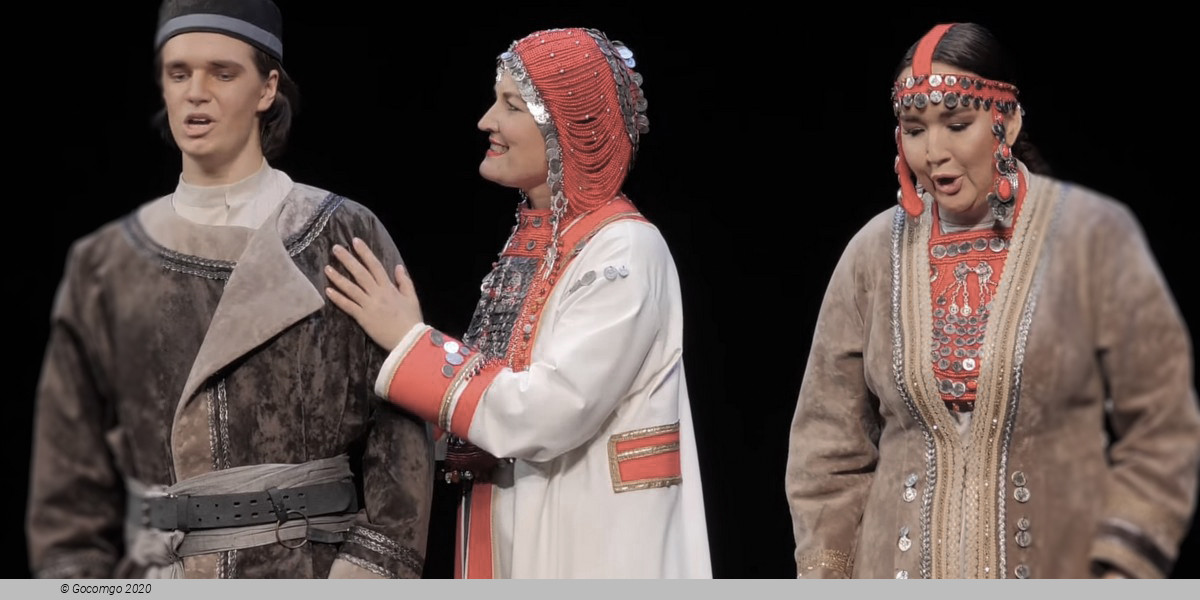The Bolshoi Theatre is a historic theatre in Moscow, Russia, originally designed by architect Joseph Bové, which holds ballet and opera performances. Before the October Revolution it was a part of the Imperial Theatres of the Russian Empire along with Maly Theatre (Small Theatre) in Moscow and a few theatres in Saint Petersburg (Hermitage Theatre, Bolshoi (Kamenny) Theatre, later Mariinsky Theatre and others).
The Bolshoi Ballet and Bolshoi Opera are amongst the oldest and most renowned ballet and opera companies in the world. It is by far the world's biggest ballet company, with more than 200 dancers. The theatre is the parent company of The Bolshoi Ballet Academy, a world-famous leading school of ballet. It has a branch at the Bolshoi Theater School in Joinville, Brazil.
The main building of the theatre, rebuilt and renovated several times during its history, is a landmark of Moscow and Russia (its iconic neoclassical façade is depicted on the Russian 100-ruble banknote). On 28 October 2011, the Bolshoi re-opened after an extensive six-year renovation. The official cost of the renovation is 21 billion rubles ($688 million). However, other Russian authorities and other people connected to it claimed much more public money was spent. The renovation included restoring acoustics to the original quality (which had been lost during the Soviet Era), as well as restoring the original Imperial decor of the Bolshoi.
The company was founded on 28 March [O.S. 17 March] 1776, when Catherine II granted Prince Peter Ouroussoff a licence to organise theatrical performances, balls and other forms of entertainment. Ouroussoff set up the theatre in collaboration with English tightrope walker Michael Maddox. Initially, it held performances in a private home, but it acquired the Petrovka Theatre and on 30 December 1780, it began producing plays and operas, thus establishing what would become the Bolshoi Theatre. Fire destroyed the Petrovka Theatre on 8 October 1805, and the New Arbat Imperial Theatre replaced it on 13 April 1808, however it also succumbed to fire during the French invasion of Moscow in 1812.
The first instance of the theatre was built between 1821 and 1824, designed and supervised to completion by architect Joseph Bové based upon an initial competition-winning design created by Petersburg-based Russian architect Andrei Mikhailov that was deemed too costly to complete. Bové also concurrently designed the nearby Maly Theatre and the surrounding Theater Square, The new building opened on 18 January 1825 as the Bolshoi Petrovsky Theatre with a performance of Fernando Sor's ballet, Cendrillon. Initially, it presented only Russian works, but foreign composers entered the repertoire around 1840.




 Teatralnaya Square 1
Teatralnaya Square 1